“I’m a hoarder. This play is going to change my life.” An interview with Hoard director Femi Elufowoju Jr
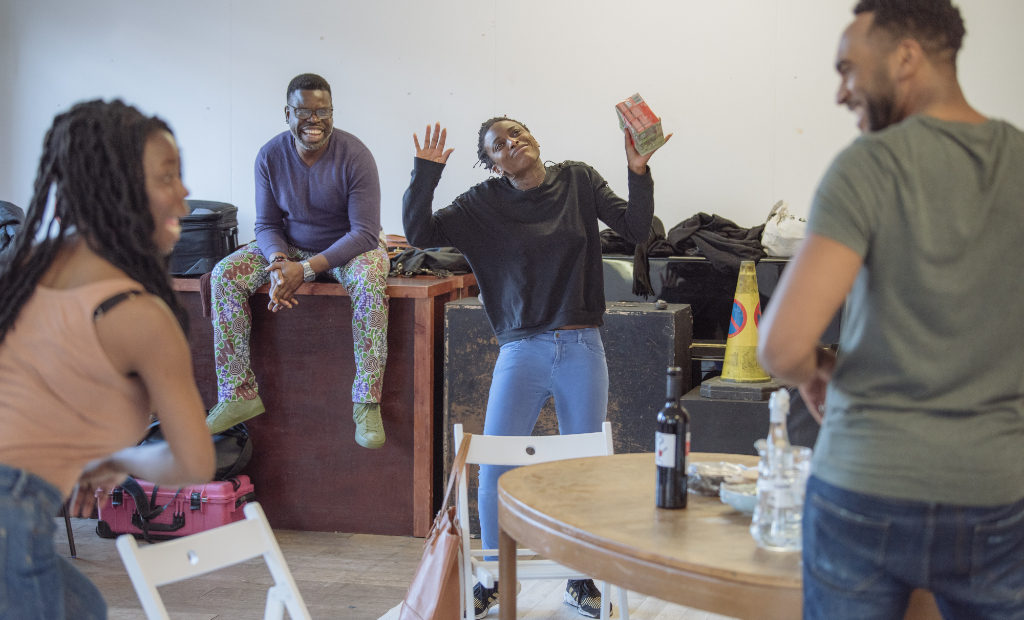
Femi Elufowoju Jr has forged a notable path in the theatre; from his early days of writing to founding theatre company tiata fahodzi in 1997 and now working as an award-winning director and producer, it’s no surprise he’s been described as a “theatre animal”. His latest directing project is Hoard, which opens at Arcola Theatre this May and is written by Buzzfeed journalist Bim Adewunmi. The one act play, centred around a family in their small living room, embarks on revealing a much larger world and the explosive effects of family secrets .
We managed to catch up with Femi just as Hoard opened at Arcola Theatre and discussed his process when starting a new play (“self-exile”), his views on hoarding (he is one) and working with Bim Adewunmi (a “hoot”).
How did you come on board with Hoard? What drew you to the story?
I was approached last year by Avalon and the BBC through my close connection with Arcola Theatre. I am pretty sure they were unaware of how close I was to the subject matter in the first instance. My parents, whilst I was growing up, instilled in me a rigid understanding of the value of lifetime possessions, especially the physical and abstract things you work tirelessly to attain. This story uses the Bakare family to explore and deconstruct hoarding in a lighthearted and raucous way.
How was it working with debut playwright and Buzzfeed journalist Bim Adewunmi?
A hoot!!! Her repository of knowledge has no bounds. Our many conversations and collaborative rehearsal relationship enabled me to experience her broad intellectual capital, which is incredibly robust. But what has excited me more is how Bim weaves and subverts the complexities within the two cultural distinctions (Lagos and London) into a compelling narrative form. You cannot teach that. Hoard is a one act play set in a small living room – but the world within is larger than what it should contain.
How does directing a play by a first-time playwright differ from your past experiences?
I have enjoyed a long history of working with writers debuting plays, and owe a specific period in the last decade for the ease I now find collaborating with Bim and other emerging dramatists. Under my previous company, tiata fahodzi, we spearheaded a new writing initiative, tiata delights, which attracted British writers of African descent submitting fresh non-commissioned work that in their opinion required dramaturgical support. With flagship companies such as Soho Theatre, Almeida and our inaugural partners Arcola, I was able to nurture and provide a platform for first-timers empowering their foothold within the industry.
Many of these writers in later years have gone on to secure residencies, full theatre commissions, radio and tv productions. For me the difference has always been having the writer readily available to decipher the key super-objectives lacing their narrative. New plays require thorough forensic investigation, as there is no precedent or yardstick to draw clarity from. Modern classics and pre-existing plays have set markers to leap from for further interpretation and insight. Hoard is an exciting find, and like a very good journalist Bim has carved up a unique and an original scoop.
What draws you to the theatre as your artistic medium?
The thrill of telling stories within an immediate and live construct at all cost. I was once described as a theatre animal – I really did not know what this meant until I was reminded of my formative years attempting to forge a foothold within the industry. This was a period in which I made some catastrophic mistakes and took some extraordinary epic risks, all ending in career meltdowns. On those occasions, I always seem to pick myself up like a belligerent camel in search of the next promising oasis. In short, I simply love illuminating narratives on stage, all for a keen and very interested audience. If that is animalistic, then I am guilty without charge.
Is there something that you want people to come away with after seeing Hoard? Was there a collaborative discussion with Bim Adewunmi? If so, how did it take shape?
The landscape of African stories on the British stage is not limited to themes associated to identity, racism, immigration, displacement, war and strife, poverty etc. There are simple social dilemmas that govern average lives that resonate universally. Hoard is one of those stories that will chime with every theatre-goer. Bim and I had never met before but had heard of each other’s work – and as we both possessed strong cultural traits and a neat little balance of being British Nigerian, we sang in sync at our first meeting. But it was within the rehearsal room where the trust gained its metal. Listening is a great teacher – we listened. A writer enjoys a director who listens. One of the key lessons from the past.
Who or what influenced your work on this project?
I’m a hoarder. This play is going to change my life.
Do you have a set approach when developing a play? Do you have a particular process or do you feel out the waters for each new production?
The last nine years have seen me approach productions in the same way. Self-exile. I literally shut away from the rest of the world. I hibernate and throw myself into intensive research and investigations into the world of the play. The political and social climate, the music of the era, the life and times of the playwright etc. I then begin to draw up lists, draw flowcharts and form timelines. I then form my creative team and commence casting. Same process for every play, playwright living or dead.
You have produced a vast body of work over your career. Have you had a favourite production?
The Secret Lives of Baba Segi’s Wives by Lola Shoneyin (adapted for the stage by Rotimi Babatunde). Discovering the novel in the autumn of 2012 and conceiving the stage production across Nigeria and the UK over the last seven years has been a game-changer for personal ambitions.
You have worn many hats in the production process as writer-director and producer. How do you navigate the balance between each role?
I abandoned writing 18 years ago after a promising start. I wasn’t that good. I love directing and enabling work to thrive with the best support available. Producing comes in the form of a sure, steady creative associate, Thomas Kell, who has collaborated alongside me over the last 12 years. My success is really his ingenuity.
How does your work as a performer influence your work as a director (and vice versa)?
Not so much influence but guide. My objectives, needs and expectations as a performer aid my intuition, choices and limitations as a director. Actors in recent years respond to my overall ethos as a director more easily.
Mary-Catherine Harvey
Photo: Cast and director of Hoard in rehearsal
by David Monteith-Hodge
Hoard is at Arcola Theatre from 15th May to 8th June 2019. For further information or to book visit the theatre’s website here.

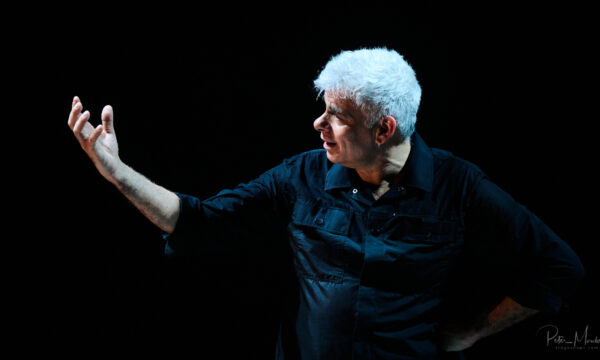
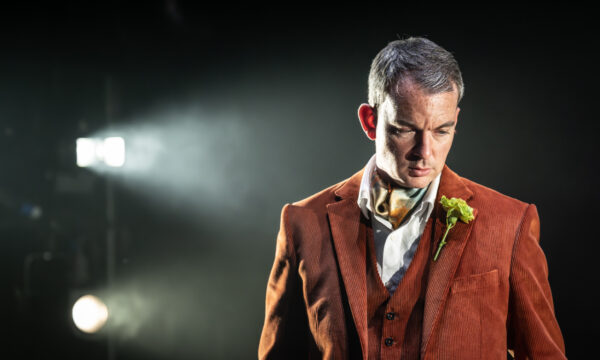
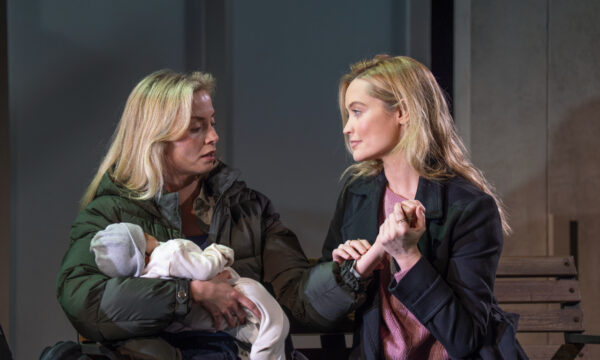
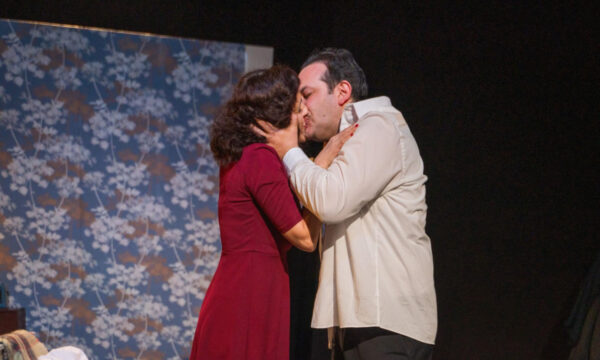



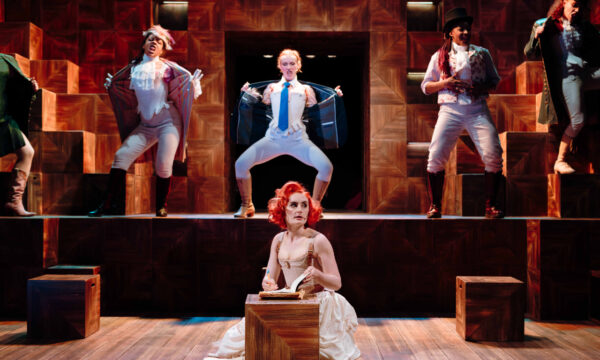
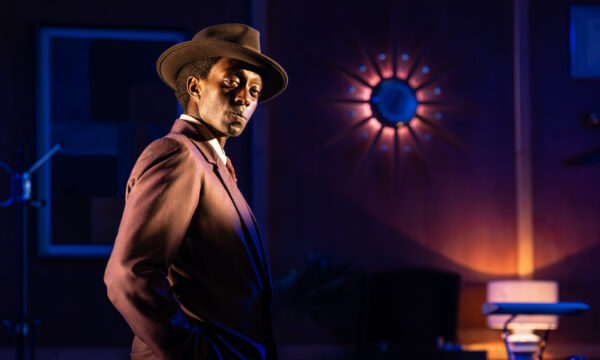










Facebook
Twitter
Instagram
YouTube
RSS